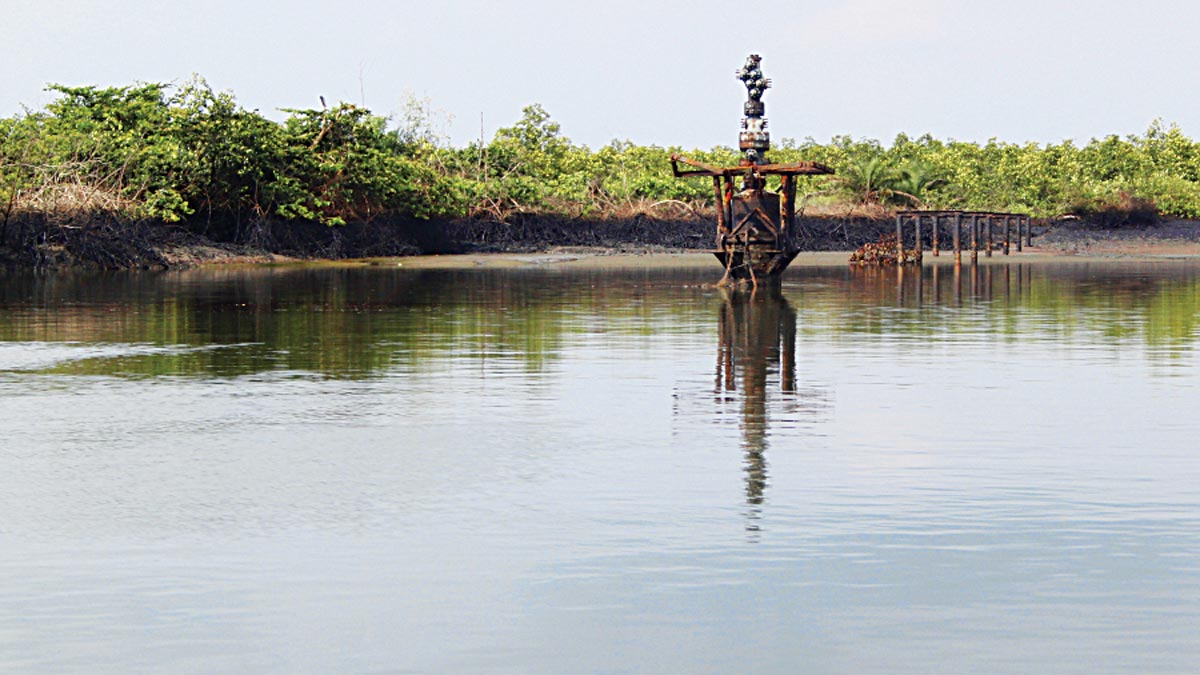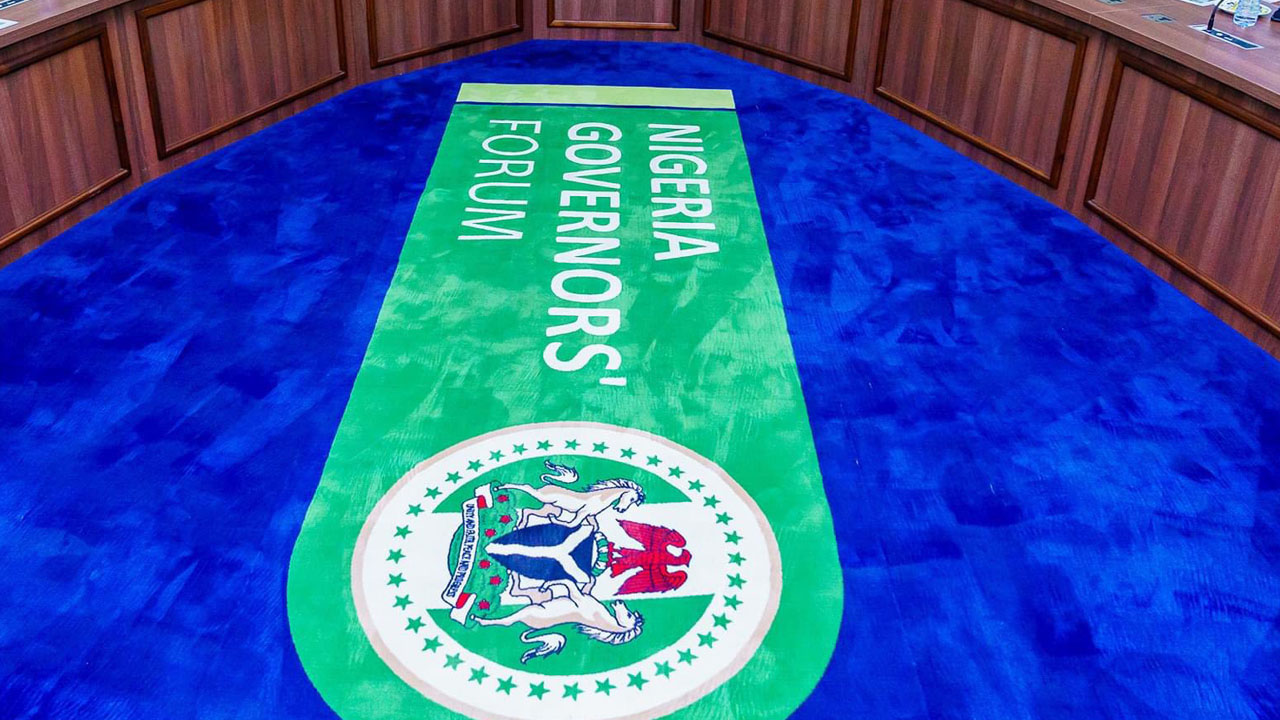
In the oil and gas sector, Shell-BP and other crude oil-prospecting and producing companies for nearly half a century dealt directly with land-owning families and communities and sorted out compensations and other grievances, and officially in recognition of “origin”, the so-called “principle of derivation” accounting for 50 per cent in the revenue sharing formula for all export proceeds or revenue between and among the politico-administrative units (regions) was agreed at collective negotiations. The Civil War military politicians and their civilian cohorts and spurious geniuses took crude oil out of the basket of exports, also as “reform”, declaring it a “national asset”, and via numerous legislations and operations of the National Oil Corporation (NAOC) and its predecessor, the Nigerian National Petroleum Corporation (NNPC), corralled the activities of the companies in that sector.
With state agencies interposed between families and communities and the private companies over issues of access to land and degradation of the environment (ownership by the former of the crude oil in their land declared out of the question albeit in an ostensibly private enterprise economy) through spillages, emissions and noise not satisfactorily resolved, certain groups and communities in the Niger Delta region in particular have, from their reactions, become branded “anti-government”, “militants”, “unpatriotic”, “disgruntled” and suchlike epithets. Reforms and conflict are still ongoing!
But these reforms targeting the so-called Niger Delta Crisis have been ineffectual largely because I think attention is self-interestedly focused on the shadow, not the real issue, the real issue being ownership of land and mineral resources and use to which accruing revenues are put. The Petroleum Act, 1969, Section 1 provides that “1) The entire ownership and control of all petroleum in, under or upon any lands to which this section applies shall be vested in the State; 2) This section applies to all land (including land covered by water) which – a) is in Nigeria ; or b) is under the territorial waters of Nigeria; or c) forms part of the continental shelf; or d) forms part of the Exclusive Economic Zone of Nigeria.”
Now, who or what is this Nigerian State that owns the land and minerals and hands over oil blocs and oil wells to a few retired generals, traditional ruler and their political associates – especially as a good many prominent nationalist politicians of the 1950s and 1960s themselves had extensive private businesses and understood the distinction between them and public property? The following are the main arguments of supporters of this brand of Nigerian State. The first, in its crudest rendition, is the “inherited colonial policy” which has manifested in such enactments as the Section 2 (1) of the 1978 Land Use Act which vests ownership of all lands in a state in the governor of the state; the 1969 Petroleum Act earlier discussed; section 40 (3) of the 1979 Constitution, and section 44 (3) of the 1999 Constitution that vest ownership of oil and gas in the Nigerian government. Such a monopoly is then declared to be in the “national interest”.
The second, recourse is had to highly distorted interpretation of certain clauses in some United Nations documents, taken in isolation, which purportedly justify seizures of property and other economic resources by the State or government. One of these is Resolution 3281 of the U.N. Charter of Economic Rights and Duties of States which provides “every state has and shall fully exercise full and permanent sovereignty including possession, use and disposal of all its wealth, natural resources and economic activities.”
In opposition to the immediate above, by words and actions, many communities and families from the oil-producing areas do not accept the legitimacy of these laws and policies spawned by them. Simplified considerably, one is confronted by the paradox of state-overseers of a market economy using the “law” to deprive respective families and communities of their property, which is then turned over to other local and foreign private interests via deregulation and privatisation reform programmes. Internally and in respect of accruing revenues, the beggar-thy-neighbour politics of revenue allocation formula bares all the hidden fangs, as ameliorating steps embodied in Niger Delta-specific institutions (OMPADEC, NDDC, Ministry of Niger Delta Affairs) and funds and contracts are also absolutely controlled by Abuja. Against this background, it should be much easier to see why the privatisation of the NNPC and its subsidiaries will meet unremitting resistance. Regarding refineries, one hears “we gave government the land because it is our (Nigeria) refinery. If they sell it, the buyer should remove the refinery and leave our land alone.” Same would apply to the pipelines criss-crossing their farmlands and swamps which come under the control of the Pipelines and Product Marketing Company (PPMC).
To decry such views and position as “unpatriotic” would itself be a blind-sided and self-serving view, especially coming from persons steeped in a seeming national culture of stopping at nothing to acquire and protect their personal wealth and property. What are raised by these families and communities are fundamental questions about the nature and legitimacy of the State itself and, of course, the brand of private enterprise economy. First, the “treaties” signed between pre-colonial political authorities of these communities and agents of certain imperial European powers formed the basis for claims of “spheres of interest” made by the latter at the 1884-1885 Berlin West African Conference, the area itself constituted into Oil Rivers Protectorate in 1884 but renamed Niger Coast Protectorate in 1893. Indeed, the treaties marked out the battle-fronts of subsequent British and French colonial military campaigns and rivalry and substantially determined the boundaries of the Crown Colony of Lagos, and what became Southern Protectorate of Nigeria in 1900 (a merger of the Niger Coast Protectorate and the chartered territories of the Royal Niger Company) and Northern Protectorate of Nigeria, and, eventually, of Nigeria in 1914.
Indeed, long before Lagos became Crown Colony in 1861-62, communities and local merchants (the most prominent being King Jaja of Opobo) had literally fought the Niger Company (which had its own troops) to a standstill over its increasingly monopolistic trading practices, since they themselves exported oil palm and other items directly to England – not to imagine scale of violence that might have resulted if the company had tried to forcibly take over community lands and resources at the time! The ensuing widespread hostilities and resistance, as generally chronicled, being some of the reasons why the Royal Niger Company lost its Charter in 1899. In sum, the simple but conveniently overlooked but troubling fact is of the families, the communities and their property pre-dating the country Nigeria. This appears to be the main reason why many from the Niger Delta (and everywhere elsewhere for that matter) thought it most offensive of General Babangida to attempt to impose a distinction between “onshore” and “offshore” operations merely for the centre to increase its take of revenue derived from operations in the oil and gas industry, as if the shores belong to “Nigeria” first before the communities themselves.
It should be pointed out that it was standard British colonial policy to enact a law or decree usurping land and minerals in the colonies, and a claimed reliance on “inherited colonial policy” on the part of post-Independence controllers of the Nigerian state is an inherently weak and defective basis for several reasons. First, metropolitan England achieved a military conquest of peoples, communities and kingdoms in what eventually became Nigeria and in 1909 when it decreed ownership of all land and minerals therein, there was no Colonial Nigerian State but of multiple arbitrarily strung together politico-administrative units (dubbed “protectorates”), and such British ownership claims were based on their own Common Law rule of capture or law of capture rendering whatever they could grab a booty of war. To claim a continuation of this state of affairs by a post-Independence government and further assert that the rule of capture overrides, since it is more ancient, the principle of quid quid plantur solo solo cedit (he who owns the land, owns everything that is in it), are not only tendentious, but also represent a stupendous backward and retrogressive preference for complete throw-back to early existence of humanoid when survival of the fittest reigned supreme.
The claim would itself be a call-to-arms and war, announcing that the only way Niger Delta families and communities can reassert their ownership of oil and gas resources is to “recapture” them! Quite happily, the claim that the rule of capture is more ancient and thus superior to the principle of quid quid plantur solo solo cedit is quite bogus as it is illogical. Since classical slavery is more ancient than society of all free persons and thus superior by this strange logic, anyone would be quite free and justified to “capture” the next person on the street into slavery. Human conduct, after centuries of ethical progress in social affairs, has evolved way past that primitive stage; even the nation-state itself is a very recent development in human affairs. Not only has quid quid plantur solo solo cedit superseded the rule of capture, so also has the Roman legal principle of property law, cuius est solum eius est usque ad coelum et ad inferos (whosoever owns the soil, it is theirs up to the sky and down to the depths) superseded it. This shows, albeit, the extent some may go in rationalizing undeserved privileges and potentially genocidal practices thereof, the Holocaust being best known example in recent history.
A somewhat sly, related narrative is that the Nigerian State searched and found oil and gas, and is thus entitled to their ownership against the claims of owners of the land where the oil and gas deposits are and who did not think of their existence nor search for and ‘capture’ them. I believe it is well established that private companies, foreign and local, discovered most of the oil and gas deposits in Nigeria, and not the Nigerian State. As for lack of knowledge of the existence of minerals depriving one of ownership once found in one’s land, is quite a silly and puerile argument and not deserving of a rebuttal, but suffice it to point out that the growth of scientific knowledge and human consumption patterns have led to both “discovery” and “re-definition” of minerals, and these may be found and, in some instances, created anywhere.
Second, the rule of capture contradicts the notion of and struggles for political Independence themselves (which revolved around dislodging the exploiter coloniser, ending racial and other discriminatory practices, protecting lives, property of persons and communities, liberty, freedom and all that) and any pretence of running a private enterprise economy in which private property is inherently sacrosanct. Stated in another form, inherent in the nature of the decolonising and post-Independence State is John Locke’s classical position of the State as an agent for its Principal, the people or citizen. This principal-agent conception of citizen-state relationship includes the principle that all property obtained by the agent while acting on the principal’s behalf belongs to the principal and must be managed exclusively and solely for their benefit.
On this view, various families and communities in the Niger Delta remain rightful owners of the oil and gas deposits and should be “managed” for their benefit. And under international law, the focus is on the exercise of full sovereignty over land and other resources by one state or country in relation to other states and not to internal ownership patterns or arrangements. This is reinforced by Resolution 626 of the U.N General Assembly which provides that “the right of peoples to use and exploit their natural wealth and resources is inherent in their sovereignty.” In 1962 the U.N General Assembly passed Resolution 1803 providing for permanent sovereignty by states over natural resources in their territories. It provides that: “The right of peoples and nations to permanent sovereignty over their natural wealth and resources must be exercised in the interests of their national development and the well-being of the people of the state concerned.” Sovereignty of nations before other nations hardly translates into sovereignty of a nation-state over its peoples and which would be a contradiction in terms. Indeed, regarding other states or nations or foreign property, the U.N Charter of Economic Rights and Duties of States was unambiguous:
Each state has the right to nationalize, expropriate or transfer ownership of foreign property in which case appropriate compensation shall be paid by the state adopting such measures, taking into account any relevant laws and regulations and all circumstances that the state considers pertinent. In any case where the question of compensation gives rise to a controversy, it shall be settled under the domestic law of the nationalizing state and by its tribunals, unless it is freely and mutually agreed by all states concerned that other peaceful means be sought on the basis of the sovereign equality of states and in accordance with the principle of free choice of means.
This provision is in sharp contrast to prevailing arrangements on compensation or lack thereof, for the Niger Delta families and communities, a process dominated by feuding and greedy politicians and their political parties and bureaucratic elites at the centre, state and local government levels.
Third, British colonial policy on land and minerals was not peculiar to Nigeria. And to bring the matter closer home and deny ready excuse to those who might wont to conveniently regard European and American examples as exceptional, it is evident that the crude oil and gas in the territories of prominent members of OPEC are owned by families (Kuwait, Saudi Arabia, Qatar, etc.) in spite of similar colonial legislation enabling the colonial state initially to appropriate rights to minerals, which the various ruling families successfully fought against and regained control.
The families control their oil and gas today in their respective kingdoms. For other OPEC members in Africa, Algeria and Angola underwent national revolution and liberation wars of the sort not yet experienced in Nigeria, inclusive occurrences which created popular political climate and mandate for revolutionary nationalisation of those minerals – and which have not been handed over to individuals as in Nigeria. That leaves Nigeria where control over resources has been central to political rivalry and competition of the factionalised elites, more intensely so since the Civil War as nationalist politicians before then were able to fudge the issue by conceding 50 per cent to the “principle of derivation” in the sharing of revenue but not reversion of ownership right to respective families and communities.
Indeed, the Petroleum Act, 1969 was imposed during a raging Civil War which, by all accounts, was mostly caused by ethnocentrism and religious factors, with the federal military regime clearly “northern-dominated”. So, has local control over “privatised” oil and gas wells been “northern-dominated” as at today. And going by the proceedings of the “national conferences” of the past two decades, there is little sign of a more equitable revenue sharing formula emerging, let alone reversion of ownership rights to respective Niger Delta families and communities. The hope of the few beneficiaries and supporters of current and deeply flawed arrangements is of the issue resolving itself naturally when crude oil and gas reserves run out!
I do not know what Mr Vice President has in mind and what he has to say to those he is meeting with in the Niger Delta. Nor do I know the basis for a redistribution of oil wells between and among leaders of dominant political parties and their business associates reportedly being demanded by some others. But I am pretty his message has little to do with Nigeria becoming a communist country where property is held in common and which can be the only ultimate justification for the federal government controlling oil and gas resources other than owning communities and families selling same to it. Until such occurs, all property is owned by someone and if acquired “for public purpose” or such other consideration, the Constitution and other legislation/laws specify procedure and compensation. This suggests not only changing the revenue allocation formula but also looking well past it to what goes to the communities and families who own the land, since artificially created local government areas and states do not own it. The “mine is mine but yours is ours” syndrome dominating the consciousness of main benefactors of current socio-political arrangements can hardly sustain a multi-ethnic and multi-cultural and vibrantly competitive society for any great length of time. So, we should look forward to change, to a better, moral society.
[ad unit=2]





